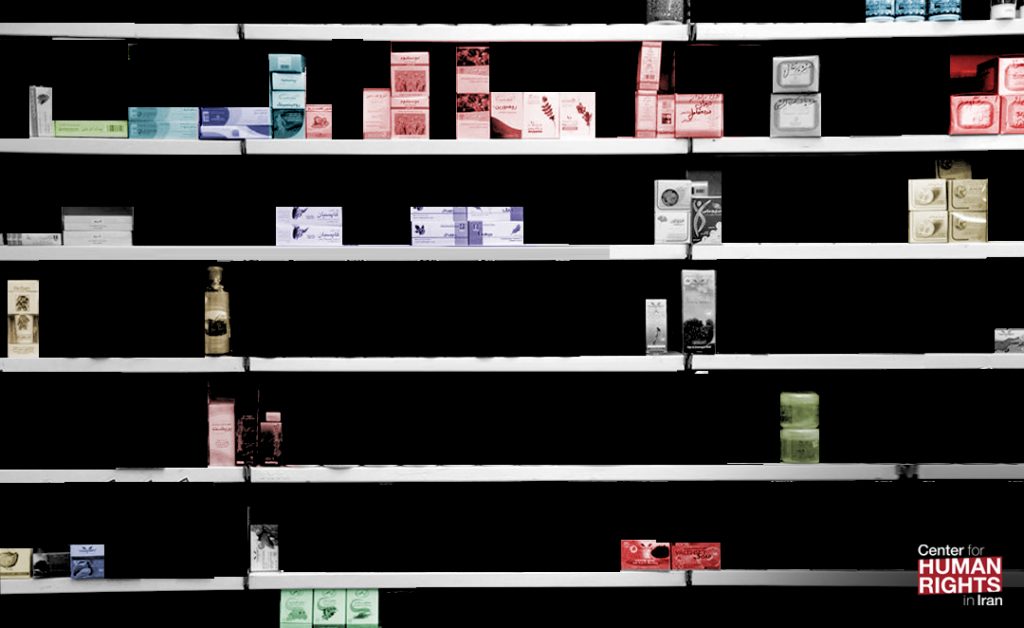Human Rights Watch: Sanctions Constrain Iranians’ Ability to Finance and Access Humanitarian Imports
 U.S. Government Should Establish Viable Channel to Facilitate Permissible Trade to Iran
U.S. Government Should Establish Viable Channel to Facilitate Permissible Trade to Iran
Despite humanitarian exemptions, U.S. economic sanctions on Iran are causing “unnecessary suffering” among Iranians who are dealing with a range of diseases and medical conditions, according to a new report by Human Rights Watch (HRW).
“U.S. officials claim to support the Iranian people in their struggle for human rights, but they don’t bother to look at the impacts of their sanctions policies that are making life more difficult for many inside Iran,” HRW Researcher Tara Sepehri Far, who authored the report, “‘Maximum Pressure’: US Economic Sanctions Harm Iranians’ Right to Health,” told the Center for Human Rights in Iran (CHRI).
“If the U.S. government is sincere about its claims, it should vigorously examine its policies to ensure that they do not cause Iranians additional harm,” she added.
Published on October 29, 2019, the 47-page report details how the Trump administration’s broad sanctions on Iran imposed after the U.S. withdrawal from the 2015 Iranian nuclear deal have significantly reduced Iranian entities’ abilities to finance humanitarian imports, including medicines.
While the U.S. government has incorporated exemptions for humanitarian imports into the regime, HRW found that in practice these exemptions have failed to offset the strong reluctance of U.S. and European companies and banks to risk incurring U.S. sanctions and legal action by exporting or financing exempted humanitarian goods to Iran.
Through interviews with pharmaceutical experts and doctors in Iran, HRW found that while there is at present no “acute nationwide lack of medications,” patients with rare diseases that require imported medications for their treatment are facing increasing difficulty in accessing or completing their treatment.
“Before the sanctions were imposed, companies were able to build up inventories, but the situation cannot continue for much longer,” a pharmaceutical importer told HRW. “If nothing changes in a year, Iranian patients will have significant challenges in accessing their most-needed treatments.”
In addition to not being able to import medicines, patients are finding it increasingly difficult to afford them.
Within six months of the U.S. withdrawal from the Joint Comprehensive Joint Plan of Action (JCPOA), which placed limitations and checks on Iran’s nuclear program in exchange for sanctions relief, the Iranian economy saw rapid, substantial increases in inflation while the value of its currency, the rial, plummeted.
This has impeded the ability of Iranian individuals and entities to access a variety of medications as well as medical equipment.
A Tehran-based doctor told HRW that “basic medication is still available in the market, but foreign-produced vitamins and supplements have been omitted from the list of [government] insurance-subsidized medications. This can particularly affect patients with special diseases such as multiple sclerosis and cancer, who need medical supplements in their treatment plans.”
Researchers affiliated with an NGO in Iran that assists children with cancer in obtaining treatment, the MAHAK Pediatric Cancer Treatment & Research Center, reported in November 2018 that it was experiencing difficulty in accessing drugs required to treat leukemia.
Documents reviewed by HRW showed that in May 2019, the NGO lacked pegaspargase, mercaptopurine, and vinblastine, three chemotherapy medications, all of which are on the WHO list of essential medicines.
“The ones who impose sanctions say that sanctions haven’t targeted medical and humanitarian issues in Iran,” said Arasb Ahamdian, the head of MAHAK’s hospital, in an interview with Euro News Persian service. “Its impact is visible in the lives of children with cancer.”
HRW made recommendations to the Iranian and U.S. governments to ensure the free flow of humanitarian goods, particularly medicine and medical equipment, to Iran.
In addition to prioritizing “allocations of resources for imports of medicine, raw materials for production of medicine, and medical equipment,” the Iranian government should “combat corruption and misuse of public funds in accordance with international human rights standards,” said HRW.
It should also allow independent international organizations “access to Iran to conduct research on key health and human rights concerns including thorough follow-up assessments of the impact of sanctions on the Iranian population.”
HRW also called on the U.S. government to “publicly clarify at the highest level that banks or companies face no legal or financial risks in exporting or financing exempted humanitarian goods to Iran” and establish “a mechanism to expedite financing of humanitarian exports to Iran.”
In October 2018, CHRI called on the international community to institute transparent financial mechanisms that would ensure trade in medicines and other essential humanitarian items will continue unimpeded with Iran.
CHRI also called on the Iranian authorities to ensure that such goods remain accessible and affordable, even to those at the lowest income levels in Iran.
On October 25, the U.S. Treasury Department said it had established a new “mechanism” to ensure that financial transactions and commercial exports to Iran involving humanitarian aid were not used to support Iranian weapons programs or terrorist groups.
“This new humanitarian mechanism will help international companies that seek to engage in permissible humanitarian trade with Iran to ensure that they do not run afoul of sanctions,” said Treasury Secretary Steven Mnuchin in a statement.
Yet the Treasury’s requirement for banks to submit detailed, monthly reports on transactions involving Iranian entities, which would be time-consuming, cumbersome and costly for banks, makes the mechanism more of a burden than a facilitator for permissible trade with Iran.
“I suspect most will see this mechanism less as a humanitarian channel and more as an intelligence-gathering function to enable additional U.S. sanctions,” said Richard Nephew, a former high-level sanctions expert at the U.S. State Department. “For those of us seeking a real channel, this ain’t it.”






